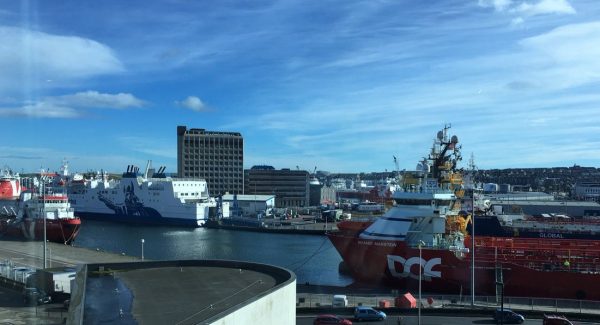British Ports Association (BPA) released an announcement outlining its key priorities for 2018. Amongst these, the focus turns on influencing the Brexit discussions, as well as the promotion of planning a freight policy reform, calls for increased transport connectivity investment and the rectification of the ‘definition of a ship’ legal anomaly.
The Chief Executive of the British Ports Association, Richard Ballantyne, said: “2018 will be a critical for UK ports as by the end of the year we should know what Brexit will look like. We will continue ensure that as important international gateways, the ports industry features in the Government’s Brexit planning, particularly in relation to any new customs and environmental arrangements. As Phase 2 of the Brexit negotiations begin, we will be pressing the UK Government to ensure that trade facilitation is given a much higher prominence in the discussions.”
The BPA emphasizes on working with the various governments within the UK. This will include Northern Irish issues in relation to Brexit, new ports ‘Good Governance Guidelines’ in England and Wales, lobbying on environmental matters in Scotland as well as discussions regarding the imminent devolution of most ports policy functions to the Welsh Government.
BPA wants ports to be classified with a special planning, in order to enhance port development and growth. Many of the rules in relation to environmental legislation stems from the EU and the BPA is encouraging policy makers to ensure that port activity and development are not negatively impacted by Brexit.
Mr. Ballantyne seemed disappointed from the UK government, as it has given in respect of the industries’ suggested planning reforms to fast track planning and consenting in port areas.
“Indeed, we also now understand that a ‘free ports’ policy is, for the time being at least, ‘off the agenda’ and that the UK ports industry will have to prepare for the introduction of the bureaucratic EU Port Services Regulation before Brexit,” Mr. Ballantyne noted.
As ports rely on good hinterland connections, BPA will also promote the case for increased road and rail infrastructure investment to better connect UK ports. This project will keep the sector competitive, reducing costs for the freight and logistics industry.
Richard Ballantyne mentioned: “We have called for a new UK freight strategy and will be pressing the Government to examine the options. As we near the publication of the results of the Department for Transport’s recent Port Connectivity Study we will be pressing the Government to prioritise freight transport infrastructure and particular challenges such as ‘last mile’ connections to ports.”
Moreover, BPA will focus on fishing, which will be another area of policy where there will be intense scrutiny as the Government introduces its own fisheries management regime early in 2018.
“As well as the continued policy and lobbying activity the BPA will further roll-out governance and duty holder training on issues such as safety and strategy for all types of ports as well as supporting internal industry benchmarking initiatives and developing a network for port security professionals,” BPA concluded.






























































